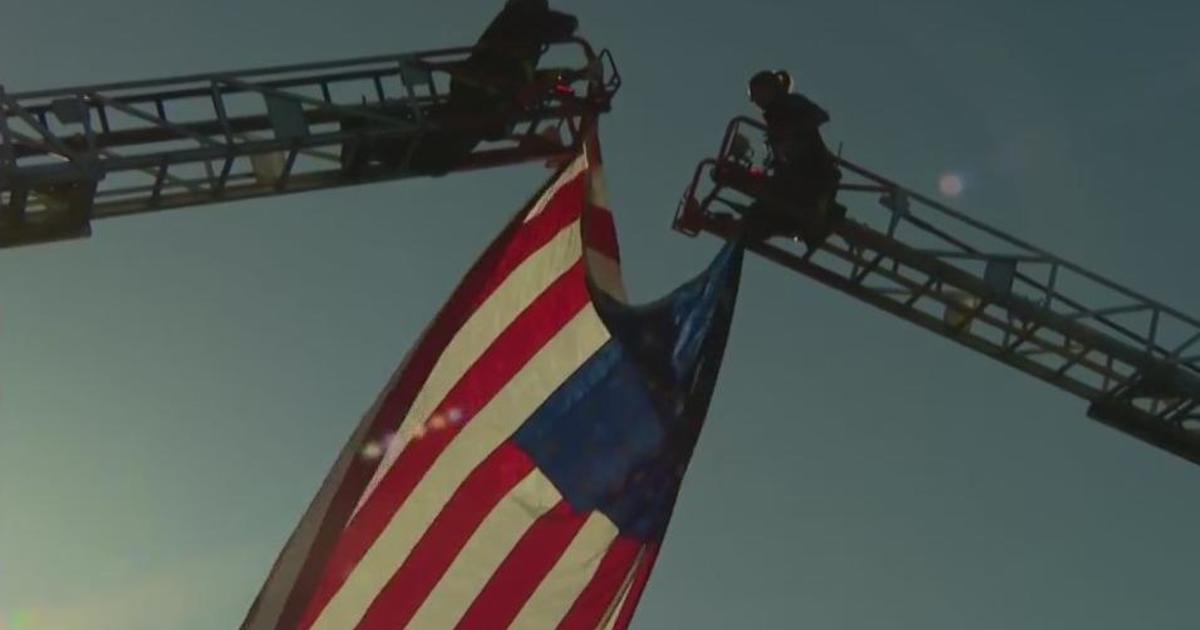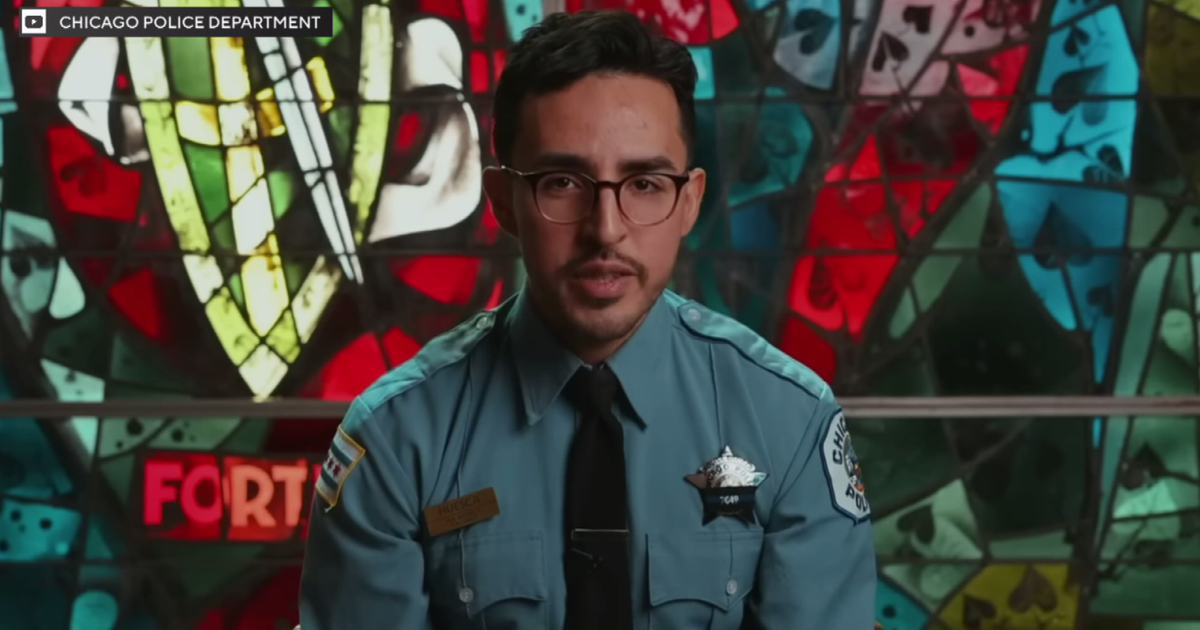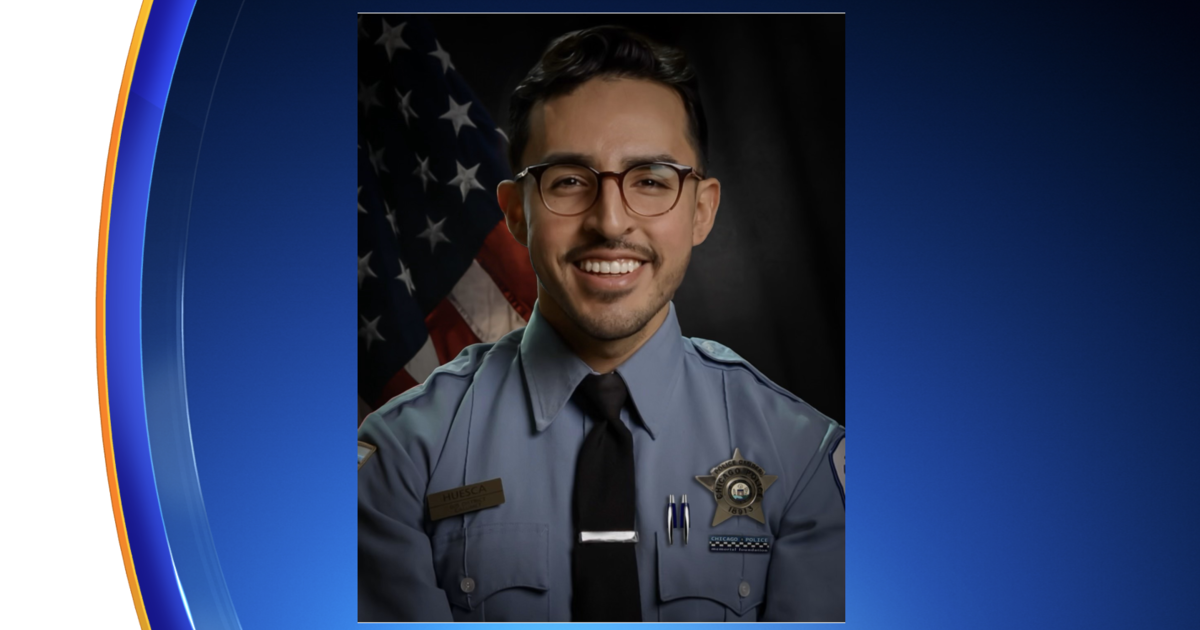Homemade Tourniquet, Quick Thinking Help Cops Save Gunshot Victim
CHICAGO (CBS) -- On Oct. 12, Chicago Police officers David Watson and Paul Moreno received a call of "shots fired/person shot" over their cruiser's radio.
It took the officers about a minute to arrive at a two-flat apartment in the 1100 block of North Lawler Avenue. The first thing they saw as they climbed the steps toward the second-floor landing was a trail of blood. Inside the apartment, in a larger pool of blood, was the victim, a 17-year-old male shot in the left leg, right leg, groin and buttocks.
After nine years as a police officer, Watson is no stranger to shootings — but, he says, this particular incident was different — and it earned Watson and Moreno "officer of the month" honors from the Chicago Police Memorial Foundation.
"I've been to a hundred shooting scenes. Most of those [the victims] were already deceased or in a condition that myself or even a doctor couldn't do anything," Watson said. "This is the first one where I knew exactly what to do and exactly what needed to be done to try to save this kid's life."
The bullet that hit the victim's right leg had severed his femoral artery. According to Moreno, Watson, a former Marine, leapt immediately into action.
"As soon as we walked in, first thing he's saying is, 'Gimme a belt, give me a rope, give me something,'" Moreno said.
A neighbor handed Watson the victim's belt, which he used to make a tourniquet.
"I asked for something, but if it came down to it, it was gonna be the cord from my radio, my baton," said Watson. "I mean I would have ripped a cord out of the wall. Either way we were gonna do something for this kid."
Another bystander pulled a stick from a house plant and Watson used it to tighten the tourniquet while Moreno calmed down the crowd of residents that had begun to gather. The officers then took turns applying pressure to the wound until emergency services reached the scene and transported the victim to Mount Sinai Hospital.
Despite knowing what to do, Watson said he didn't think it would save the young man's life, "I thought he lost too much blood by that time."
Watson says police officers are not, as a matter of policy, trained in first aid. Neither are all officers equipped with the blood clotting gauze, "QuickClot," which alderman have petitioned Chicago Police to carry. Above all, in saving the young man's life, Watson credits what he learned in the Marines.
"When we walked in and see who we believe is their mother because she's screaming 'Save my baby, save my baby!' — what can you do in that situation? Sit there and watch this mother watch her child die? You can't do that," Watson said. "I think it was the emotion of being a father myself, seeing this mother watching her child bleed out on the floor and die, at that point yes, my Marine Corps training kicked in."
Police on Tuesday said the victim continues to recover, and hospital staff told Watson his quick thinking is the reason. On Tuesday, Officers Watson and Moreno were presented with the officer of the month award for their efforts.
In a City Council Finance Committee meeting in September, Alderman Ed Burke pushed for all officers to be outfitted with quick-clotting gauze. Burke called for the equipment to be funded by the nearly $72 million in forfeiture proceeds brought in by the Chicago Police department since 2009.
As of Wednesday, police had made no arrests in connection with the incident.
(Source: Sun-Times Media Wire © Chicago Sun-Times 2016. All Rights Reserved. This material may not be published, broadcast, rewritten, or redistributed.)



